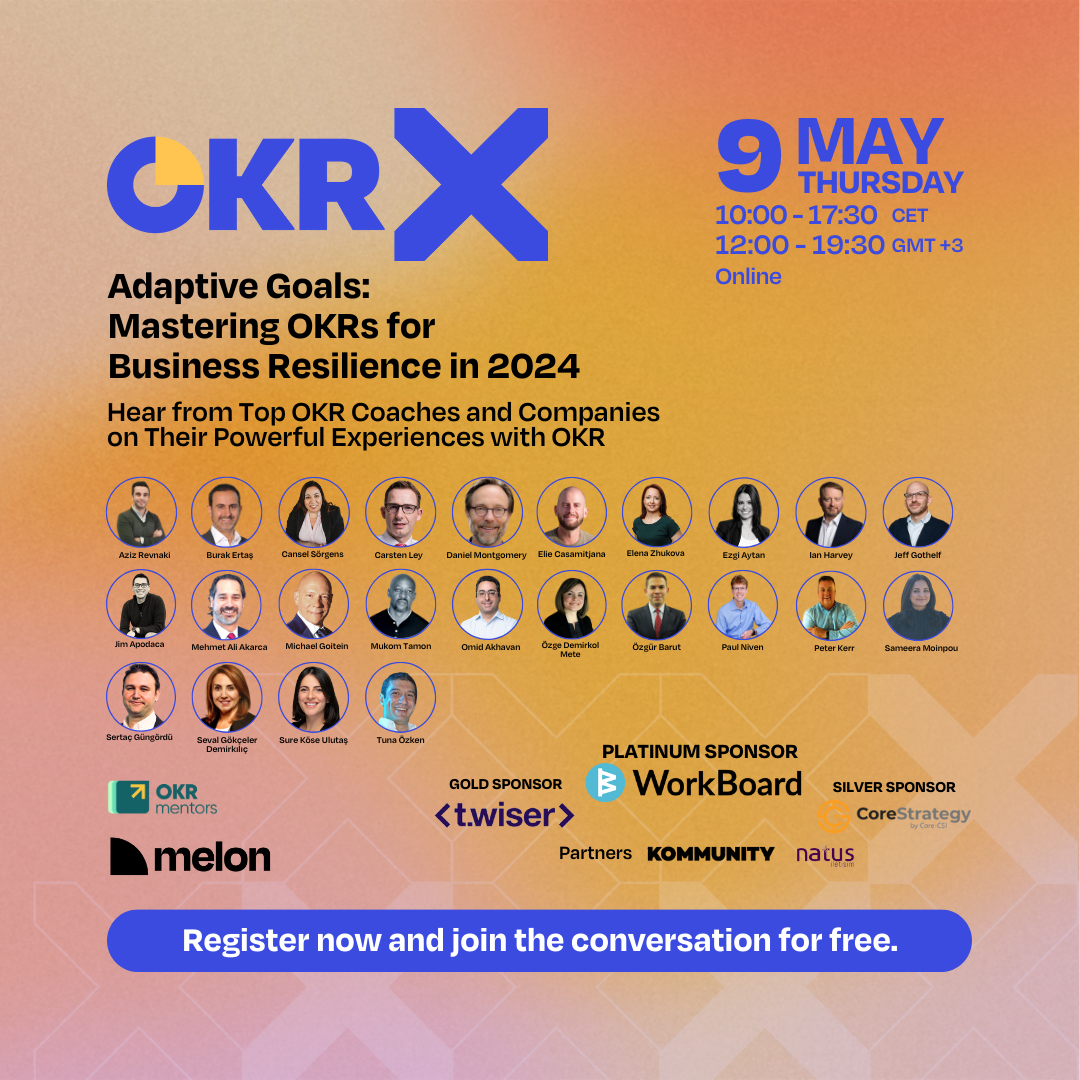We have been witnessing prolonged crises in the 21st century that have created severe economic fluctuations globally. In terms of the world market, businesses had to adapt their models to the new world order quickly to diminish their costs in the long run. One primary example of this deep-rooted upheaval is the Covid-19 outbreak that drastically changed our lifestyle in the last two years.
The uncertainty in the financial market, supply chain disruptions, and the panic environment in the governance of companies had an impact on the crisis management of businesses. Indeed, agility in organizations has become crucial with the unprecedented consequences of the crisis. Not only small-medium sized enterprises but also large corporations had to face questions: Should we continue with traditional models or adopt OKRs? How should we be more agile while struggling with uncertainty and rapid change?
The answers to these questions mainly lie under the agility provided by OKRs that give businesses moving in a positive direction within the much-needed common ground. Let’s see the impact of an interesting study:
McKinsey & Company investigated 25 companies across 7 sectors to decide whether agile business units responded to Covid-19 shock better than non-agile units. According to their research, performance self-assessments of companies demonstrated that there is a significant outperformance difference between these two parties.

Figure 1: An operating model for the next normal: Lessons from agile organizations in the crisis, McKinsey & Company (2020)
Based on results, executives indicated that agile teams have transited smoothly during the crisis in terms of productivity, prioritization, and shifting focus. Moreover, they claimed that the transition of agile units was rapid compared to the other teams according to the companies. To measure this impact, McKinsey & Company analyzed the relationship between service adjustment speed and agile maturities of companies. To give an example, they measured 36 telco providers of 11 Asian and European countries’ elapsed time of launching services due to the Covid-19 pandemic. They found that the telco operators that are already agile took action way faster than the country average. By doing that, they evaluated how agility with OKRs affects the company’s decision-making during survival mode.

Figure 2: Covid-19 response of agile vs. nonagile telco operators, McKinsey & Company (2020)
Related to the successful comparison examples, the previous week at OKRX Summit 2022, we talked with world-renowned speakers on OKRs and their impact on company transformation. Daniel Montgomery, the managing director of Agile Strategies, talked about agility and the path of OKRs for businesses. At the end of his speech, he gave an example of a call center company in the US and their decision-making at the beginning of the pandemic. He said that when they checked in with the company and asked how the OKRs were going, they received a disappointing answer in which the company panicked and gave up the OKRs immediately. Daniel added that the call center company, unfortunately, missed the point about the aim of OKRs. He continued that they should focus on new OKRs by putting previous ones aside; changing OKRs in the middle of a cycle for crisis management is absolutely normal to be implemented, which will lead to the successful road to agility in the end.
We should be prepared for upcoming crises; not only for the unpredicted ones but also foreseeable near future such as climate crisis. The crucial steps are to start and sustain progress by adopting OKRs as habits and gaining agility in goal setting, reviewing and adjusting when needed. As we see from the research of McKinsey & Company, the agility of companies creates a substantial difference rapidly; it can devastate or embrace your team eventually. If you are planning to start your OKR transformation, you can reach us.
Stay tuned for our sustainability posts!










